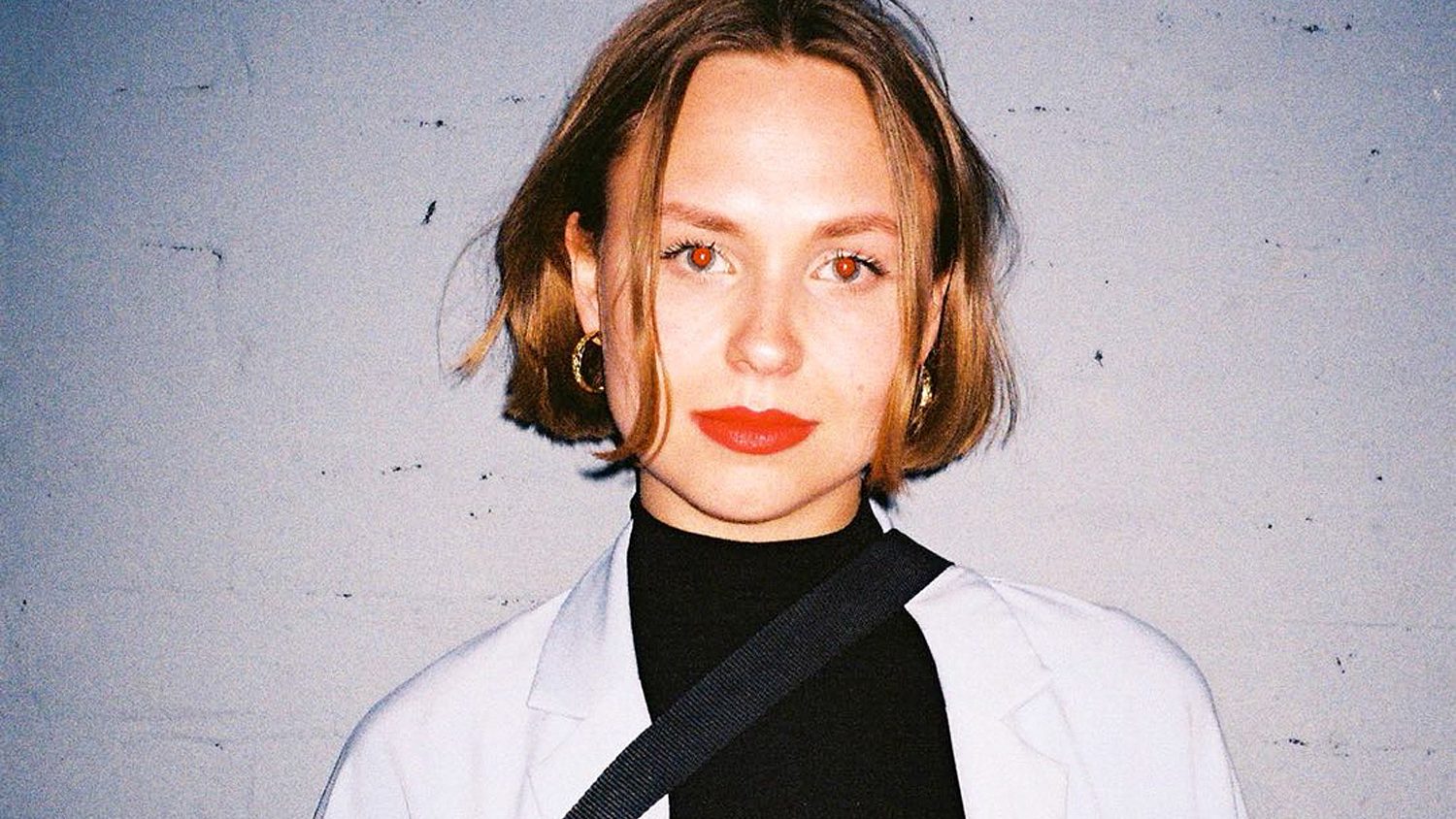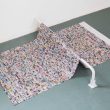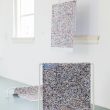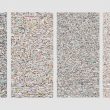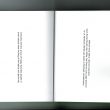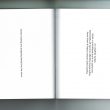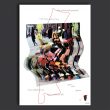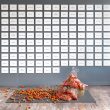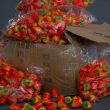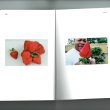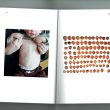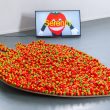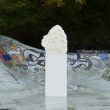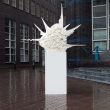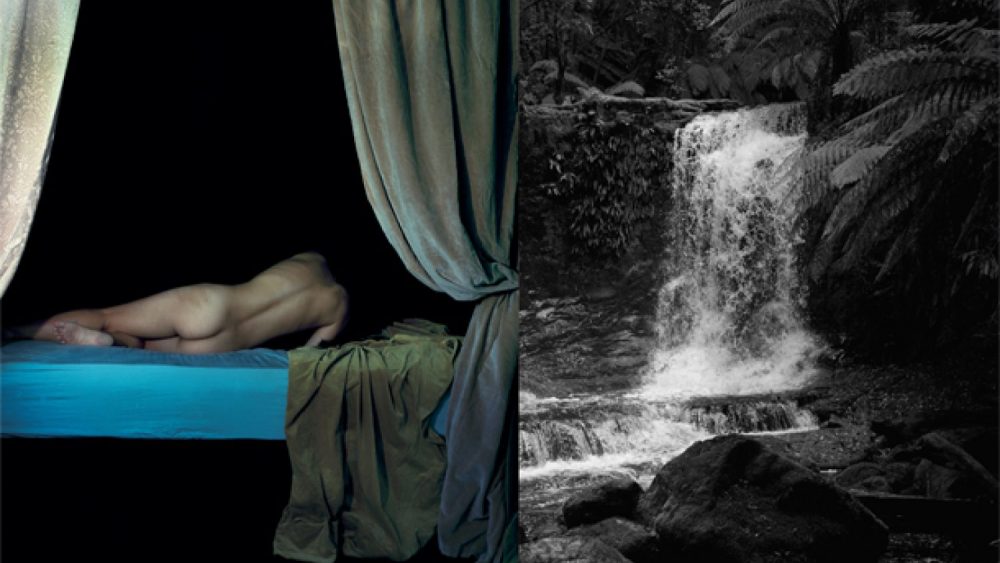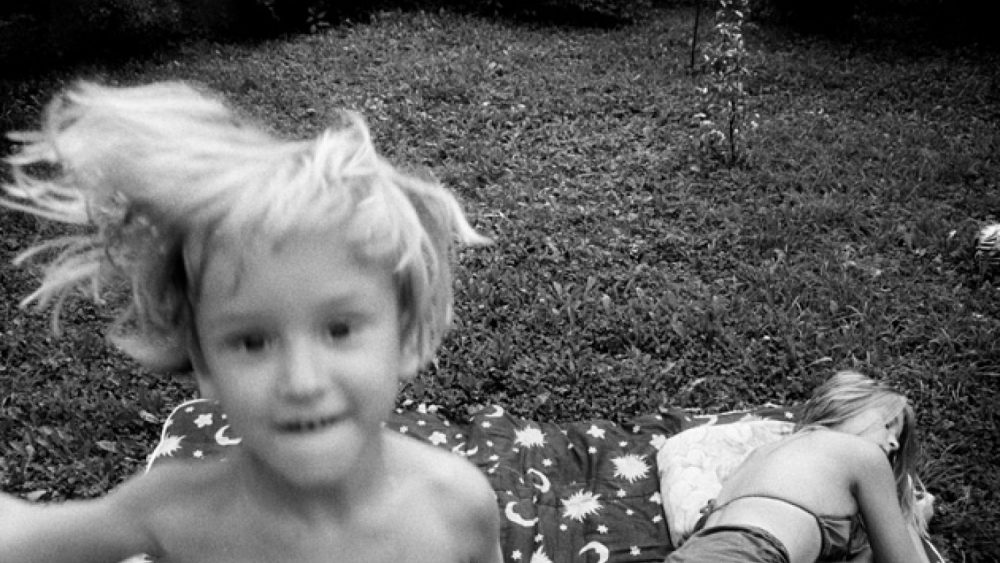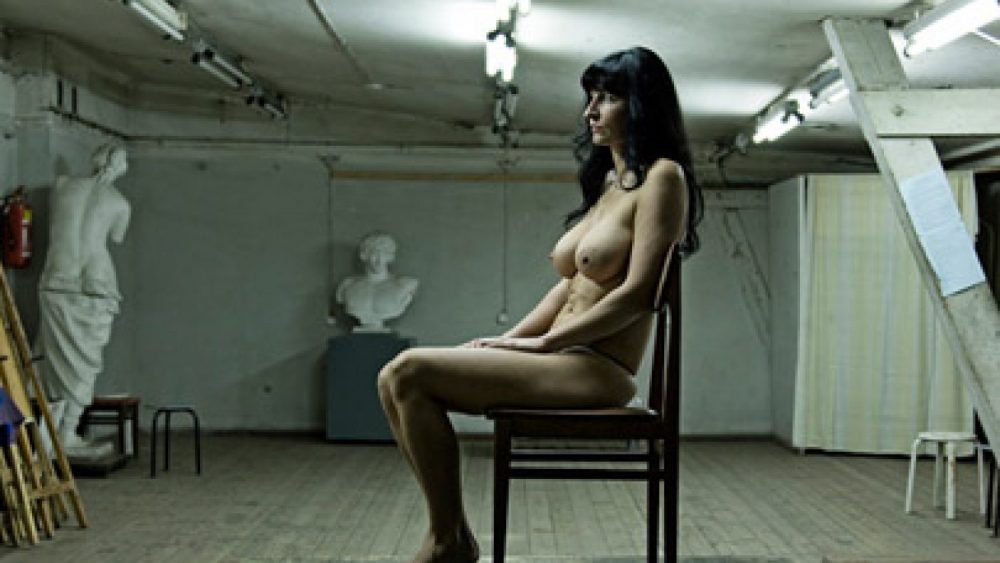Annija Muižule
Annija Muižule (1992) is a Latvian artist who currently lives and works in the Netherlands. In 2017 she graduated from the Photography programme of the Royal Academy of Art, The Hague (KABK). She has participated in a number of exhibitions, mostly in the Netherlands. In her works, Annija addresses problems that are intrinsic to the modern visual era – the abundance of images, use of photographs and visual literacy, calling for a critical assessment of the impact of visual culture on our perception of the world.
Annija is the winner of the Riga Photography Biennal – NEXT 2019 award Seeking the Latest in Photography!, which gave her the opportunity to hold a solo show at the ISSP Gallery. Her show Joyful Businessmen Having Fun in the Office is on view from 4 April to 8 May.
What will we be able to see in your exhibition?
The project consists of three works of art addressing the issues of the image production industry and particularly how this industry impacts our understanding of reality. All the works are mostly focused on such communication infrastructure as Getty Images and Shutterstock. These image depositories own visual property, which entails millions of photographs. Later these photographs are used, for example, in the articles of printed magazines or on the Internet. I have observed that our [news portal] TVNET frequently uses Shutterstock stock images. To my mind, the situation, in which communication infrastructures have an opportunity to package and sell our emotions in visual and marketable products, is very real and present.
How did you turn to photography?
It’s not an original story. I became interested in photography when I was 15 years old and realised that I could not paint or express myself otherwise visually, yet I was determined to find a way to express myself and my opinion. My dad always laughed – I have so much to say that there is no other way to tell other people about it. He called me a maximalist. In the beginning I was obsessed with photographing everything that seemed beautiful, was aesthetically pleasant and attracted my attention. Later I turned to fashion photography, until I went to the Netherlands and started my studies at the Royal Academy of Art, The Hague (KABK).
How can art help us improve visual media literacy?
Most of us perceive the surrounding world as something self-explanatory. We don’t question ourselves frequently – why is something like it is and not any other way? Reading images, intentionally or unintentionally, has become an organic part of our everyday lives. Most of the images we are bombarded with are generalised and non-stimulating clichés. They only feed stereotypical and shallow thinking, as opposed to critical and analytical perception. Art, in its turn, is transformative. It helps to de-contextualise information, which is sometimes difficult to grasp through informative texts. Art provides a unique way to appropriate what is already well-known, and thus to communicate with the public in this way is much easier, since we can use methods and aesthetics that are already visually recognizable.
What do you do in the Netherlands?
In the Netherlands, I live and work both in Amsterdam and The Hague. For the time being, I am in a sort of transfer phase, when I turn into a professional from a student and begin to be more aware of who I am, what I am doing now and what I want to achieve in my professional career. My daily life consists of exploring new information, working on new projects and polishing a few other projects that have already been started. Over the past few years, I have participated in a number of exhibitions, and I continue to work on one of my professional goals – to write articles and essays. Recently I was in Serbia and created a visual and textual project for the magazine Badland, which is linked to the cultural, political and religious events of Belgrade.
What will be your next project be about?
As soon as I graduated from the Photography programme, I knew that I wanted to continue studying for a Master’s degree, because I want to explore the artistic research theory, methodology and practice at the next level, using a variety of media. Nearly two years have passed and I feel ready to continue my studies. This is my next big project. During my studies I want to investigate visual culture from an academic and artistic point of view, to work on new theories and practical methodologies that help to understand a world so abundant with images.
